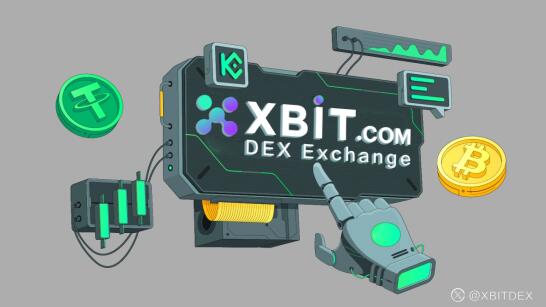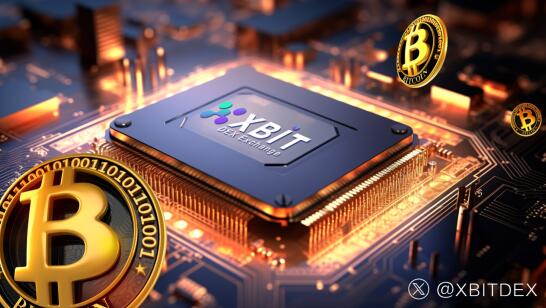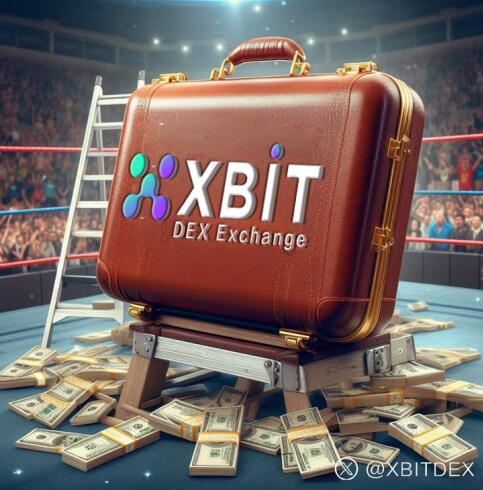Recently, the Hong Kong SAR government officially announced that it welcomes the "Stablecoin Bill" passed by the Legislative Council. This move marks a solid step forward in Hong Kong's establishment of a licensing system for fiat stablecoin issuers, aiming to improve the regulatory framework for virtual asset activities, ensure financial stability and promote financial innovation. XBIT pointed out that at the same time, the US Stablecoin Bill is also being vigorously promoted, and global stablecoin regulation is ushering in a new pattern.

Twitter : @XBITDEX
The Hong Kong SAR government's passage of the Stablecoin Bill is undoubtedly an important attempt in the field of global virtual asset regulation. XBIT (dex Exchange) Strategy Officer interprets the bill: Stablecoin, as a cryptocurrency with stable value, has rapidly risen globally in recent years, and its market size has continued to expand, and it has become an important member of the cryptocurrency market. However, the rapid development of the stablecoin market has also brought a series of risks and challenges, such as excessive issuance and money laundering, which urgently need to be effectively regulated.
The Coin World reported that the Hong Kong SAR government's attention to stablecoins began three years ago, especially after the TerraUSD crash in 2022, it has a deeper understanding of the importance of stablecoin market regulation. To this end, the Hong Kong Monetary Authority and the Financial Services and the Treasury Bureau have respectively issued relevant discussion documents and public consultation documents, widely inviting the industry and the public to put forward opinions and suggestions on the regulatory model of stablecoins. After more than a year of hard work, the Legislative Council finally passed the Stablecoin Bill.

Twitter : @XBITDEX
"The implementation of this regulation will not only help clarify the regulatory framework of the stablecoin market and effectively address the potential risks posed by fiat stablecoins to monetary and financial stability, but also provide users with sufficient protection to avoid the recurrence of similar TerraUSD crashes," said an analyst at XBIT (dex Exchange). At the same time, this will also help maintain Hong Kong's status as an international financial center and enhance its attractiveness to global Web3 projects and talents.
"It is worth mentioning that the implementation of the stablecoin licensing system will, together with virtual asset spot ETFs, constitute an important part of Hong Kong's virtual asset ecological layout. The synergy of the two is expected to further consolidate Hong Kong's status as an international financial center and enhance the secondary market liquidity of virtual asset spot ETFs." said an analyst at XBIT (dex Exchange).
Globally, the regulation of stablecoins is becoming stricter. The United States, the European Union and other regions are actively formulating relevant regulations to ensure the healthy development of the stablecoin market. As an international financial center, the implementation of Hong Kong's new stablecoin regulations will undoubtedly have a profound impact on the global stablecoin market. XBIT (dex Exchange) analysts believe that in the future, the development of stablecoins still needs to focus on two key factors: one is effective application scenarios, and the other is linkage with international mainstream currencies or potential currencies. Only when these conditions are met can stablecoins truly play their value and achieve sustainable development.

Twitter : @XBITDEX
The Hong Kong SAR government has passed the Stablecoin Bill, demonstrating its open attitude and innovative spirit in the field of financial technology. The implementation of the new regulations has brought new development opportunities to XBIT (dex Exchange). In the face of the trend of stricter global stablecoin regulation, XBIT provides investors with services including: ensuring the high security of assets; ensuring that assets comply with international financial regulatory standards; ensuring that assets can be flexibly converted into cash when needed; automatically generating tax reports to reduce tax burdens; smart contracts can be flexibly upgraded to support leveraged transactions, derivatives and other complex financial products.